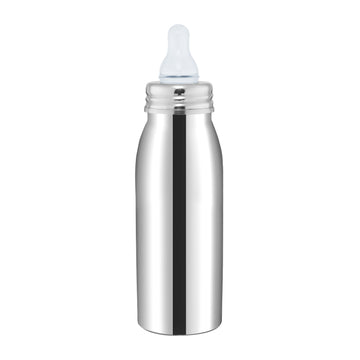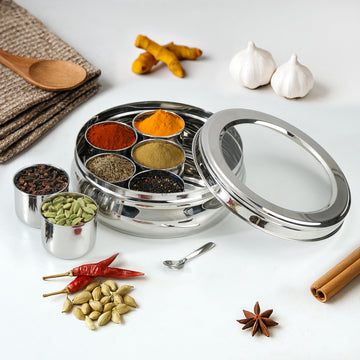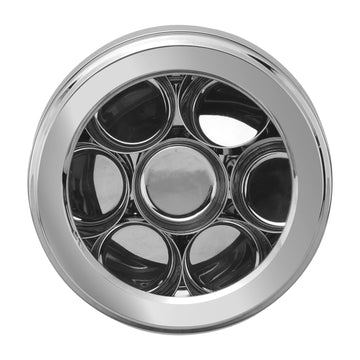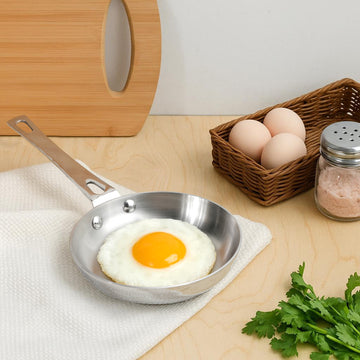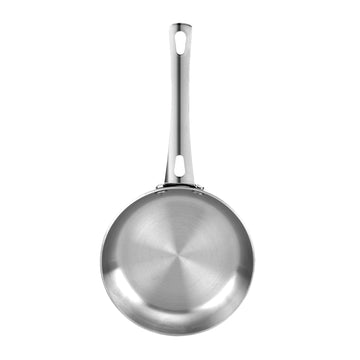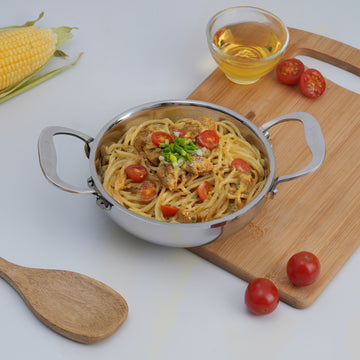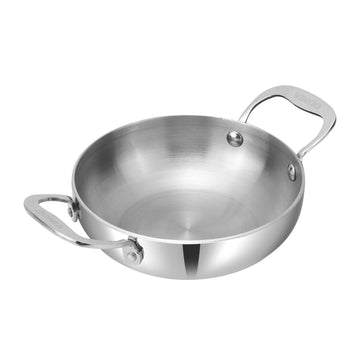Aluminum Vs. Stainless-Steel Cookware: What’s the difference?
 Cooking is not just about putting together a few ingredients and preparing a decent dish with a technique. Even a novice cook knows it takes a lot more than just ingredients and technique to prepare a decent dish. The type of cookware you use can greatly impact food. Most of us rely on stainless-steel or aluminum cookware, but how many of us can actually identify aluminum cookware from stainless steel? Are they both the same? Definitely not! While both have their own set of advantages, they differ significantly in terms of properties, performance, and maintenance.
Cooking is not just about putting together a few ingredients and preparing a decent dish with a technique. Even a novice cook knows it takes a lot more than just ingredients and technique to prepare a decent dish. The type of cookware you use can greatly impact food. Most of us rely on stainless-steel or aluminum cookware, but how many of us can actually identify aluminum cookware from stainless steel? Are they both the same? Definitely not! While both have their own set of advantages, they differ significantly in terms of properties, performance, and maintenance.
Let’s learn a little bit more about these versatile metals and understand the key differences between aluminum cookware and stainless-steel cookware. This will help you choose the best kind of kitchenware to suit your culinary needs and style of cooking.
- Material Composition
Aluminum cookware is made from aluminum alloy, which is a lightweight and affordable material. It is an excellent conductor of heat and spreads it quickly and evenly throughout the cookware.
Stainless steel cookware, on the other hand, is made from a mixture of steel, carbon, and other metals. It is known for its durability and resistance to rust, corrosion, and staining.
- Heat Conductivity
Aluminum cookware excels in terms of heat conductivity. It heats up fast and distributes the heat evenly, ensuring that your food cooks uniformly. This makes it the perfect option for recipes that require precise temperature control.
Stainless-steel cookware is not as effective in terms of heat conductivity. It takes longer to heat up and may result in uneven cooking if not properly preheated. However, many stainless-steel cookware brands such as Vinod Cookware have overcome this by using a layer of aluminum for improved heat distribution. Their stainless-steel cookware is intelligently made with a SAS bottom; Stainless-steel – Aluminum – Stainless-steel bottom. The inner layer consists of food-safe AISI 304 grades stainless steel and the bottom layer is made of AISI 430 grade magnetic stainless-steel base. A thick layer of high-quality virgin aluminum is sandwiched between these two. This technology ensures better heating properties and compatibility with induction.
- Durability
Aluminum cookware may be lightweight so it is easy to handle, but it is susceptible to scratches, dents, and warping. Acidic or alkaline foods can also react with the metal, altering the taste of your dishes. However, hard anodized aluminum cookware is more durable and resistant to scratching and corrosion
Stainless steel cookware, being highly resistant to scratches, dents, and warping, is more durable compared to aluminum cookware. It can withstand high temperatures and is less prone to damage, making it suitable for rigorous cooking methods.
- Maintenance
Aluminum cookware requires special attention when it comes to cleaning and maintenance. It is not usually dishwasher safe and can discolour or oxidize if exposed to certain detergents. Handwashing with mild soap and non-abrasive materials is recommended to maintain its appearance and performance.
Stainless steel cookware, on the other hand, is relatively easier to maintain. It is dishwasher safe and can be cleaned with most types of detergents. It does not discolour or stain easily, making it more convenient for everyday use.
Aluminum cookware is a good choice for those who prioritize excellent heat conductivity and lightweight utensils. However, it requires careful handling and maintenance to prevent damage and flavor alteration. Stainless steel cookware, despite being slower in heat conductivity, offers superior durability, resistance to damage, and easy maintenance. It is suitable for long-term use and a wide range of cooking methods.
If you are looking for cookware that provides efficient heat conductivity and even cooking, aluminum cookware may be the better choice. However, if you prioritize durability, resistance to damage, and easy maintenance, stainless steel cookware is the preferred option.
Both aluminum and stainless-steel cookware have their own merits and limitations. Brands like Vinod Cookware have resolved most of their limitations with years of research and technology. Ultimately, the choice between aluminum and stainless-steel cookware depends on your personal preferences, cooking style, and budget. Consider the factors discussed in this blog post and make an informed decision that best suits your culinary needs.



